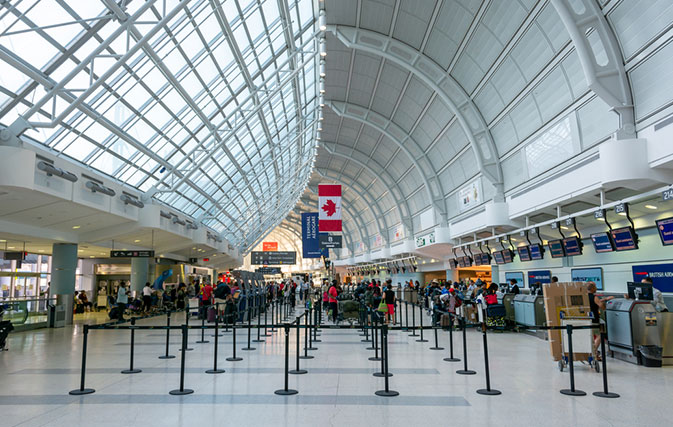TORONTO — With the busy fall and winter travel season fast approaching, it’s not just agents who are calling for long-lasting solutions for Canada’s air travel woes – it’s industry watchers too.
For the second time in a week, an opinion piece in The Globe and Mail has an industry insider urging the federal government to step up with long-term fixes.
Vacationers may be enjoying these waning days of summer, but the travel industry is already in full gear for the months ahead, with fall and winter product launches on the calendar. And travellers will soon be booking that product – some are already – as they look to escape the snow and ice.
“THE GOVERNMENT NEEDS TO SWITCH GEARS”
In the latest opinion piece in the Globe, Duncan Dee, a former Air Canada exec who headed up a panel reviewing the Canada Transportation Act a few years ago, says that with the summer travel season winding down, now is the time for implementing smart solutions, “for the travel peaks to come.”
He adds: “Unless it believes it has unlimited resources to continue to simply add more personnel to solve its problems, the government needs to switch gears and have a serious look at the governance models and processes that resulted in a period of sustained air-travel hell.”
Dee says that at the height of the summer air travel chaos, the federal government chose to focus on traveller behaviour – telling air travellers to show up at overrun airports hours in advance – and hiring more airport security screeners and customs and immigration officers.
Staffing up helped. But as Dee notes, “by not fixing the core process failures, which caused the delays and disruptions, the government chose to apply band-aids when far more serious intervention was needed.”
He says the government needs to be flexible on “changing things that don’t work – for example, an air traveller screening governance model that involves far too many players and blurs the lines of accountability.”
Dee argues that Canada should adopt a system similar to PreCheck in the U.S., to help expedite screening for trusted travellers.
He adds that prioritizing leading-edge tech for CBSA processes – something that put Canada ahead of the pack in years past – would speed things up. More technological advances for “change-resistant agencies” like CATSA would help as well, he says.
And if nothing changes? “While the summer’s travel disruptions are now largely behind us, complacency will ensure that the next disruptions are just around the corner,” says Dee.
ADDING MORE VOICES TO THE FRAY
Last week educator and consumer rights advocate Daniel Tsai, in his piece in the Globe, outlined potential courses of action to close the refunds loophole.
Airlines including Air Canada and WestJet say flight disruptions due to crew constraints are a safety-related issue and therefore ineligible for refunds. Last month WestJet filed a motion in the Federal Court of Appeal in a bid to quash a directive from the CTA to pay a passenger $1,000 in compensation for a flight disruption caused by crew constraints.
At the Aug. 19 hearing into Canada’s airport chaos, Minister of Transport Omar Alghabra said that while he didn’t want to pre-judge individual claims now in the hands of the CTA, “I don’t feel that labour issues can be used” to reject compensation claims.”
Last week travel advisor Heidi Hurst told Travelweek that the summer’s airport chaos at Pearson in particular, coupled with the threat of cancelled flights, has made some clients hesitant. “This CANNOT happen for the Christmas season. There has to be a way of only adding lift when they know they can staff it. For an industry that relies on long-term planning, we’ll have to get better at our short game.”

